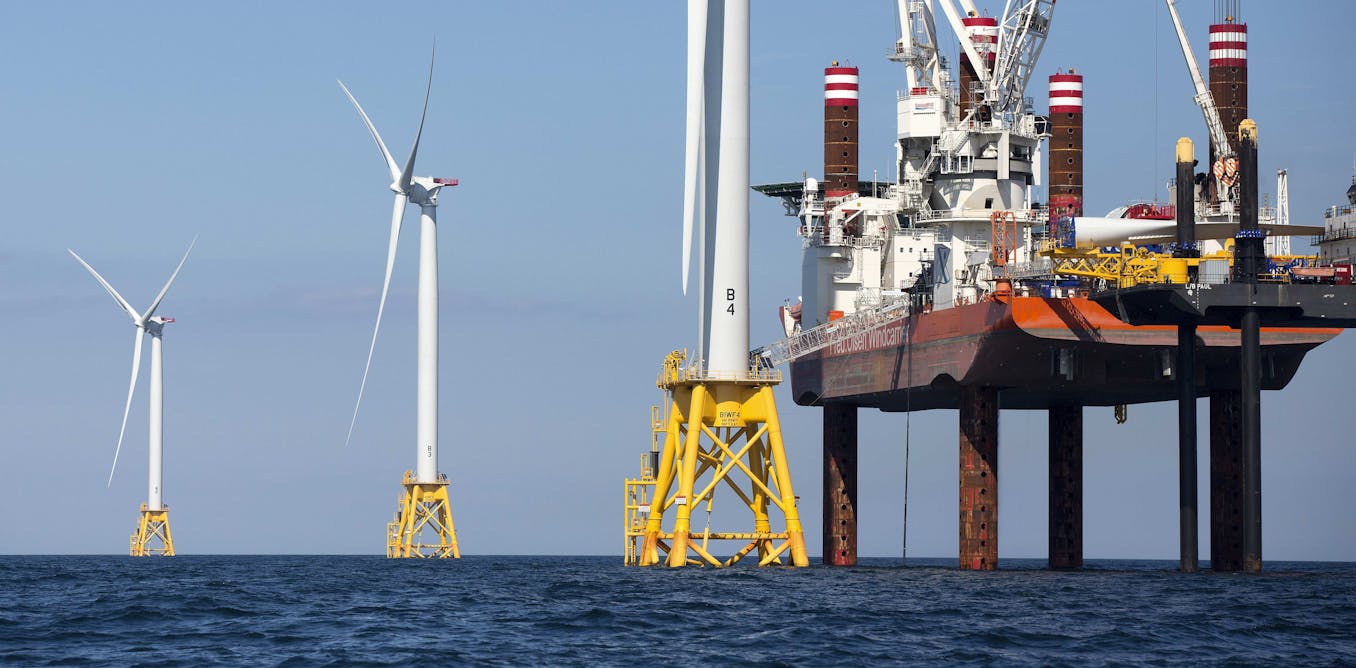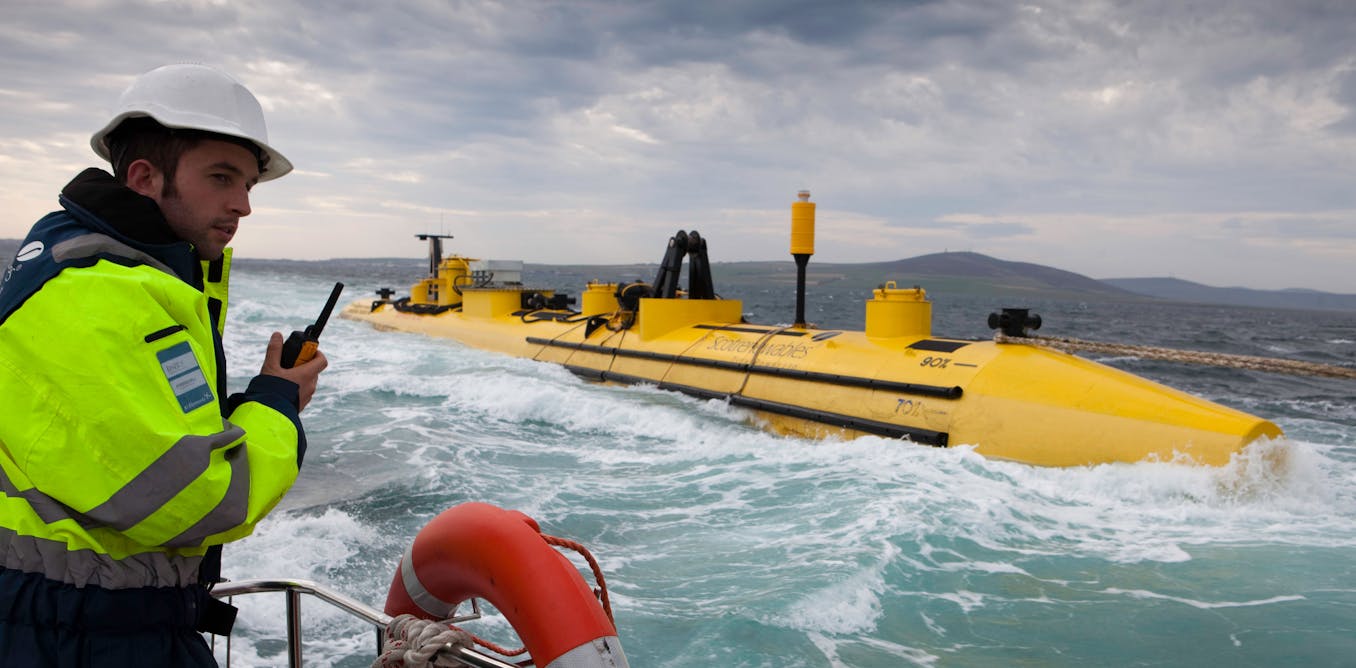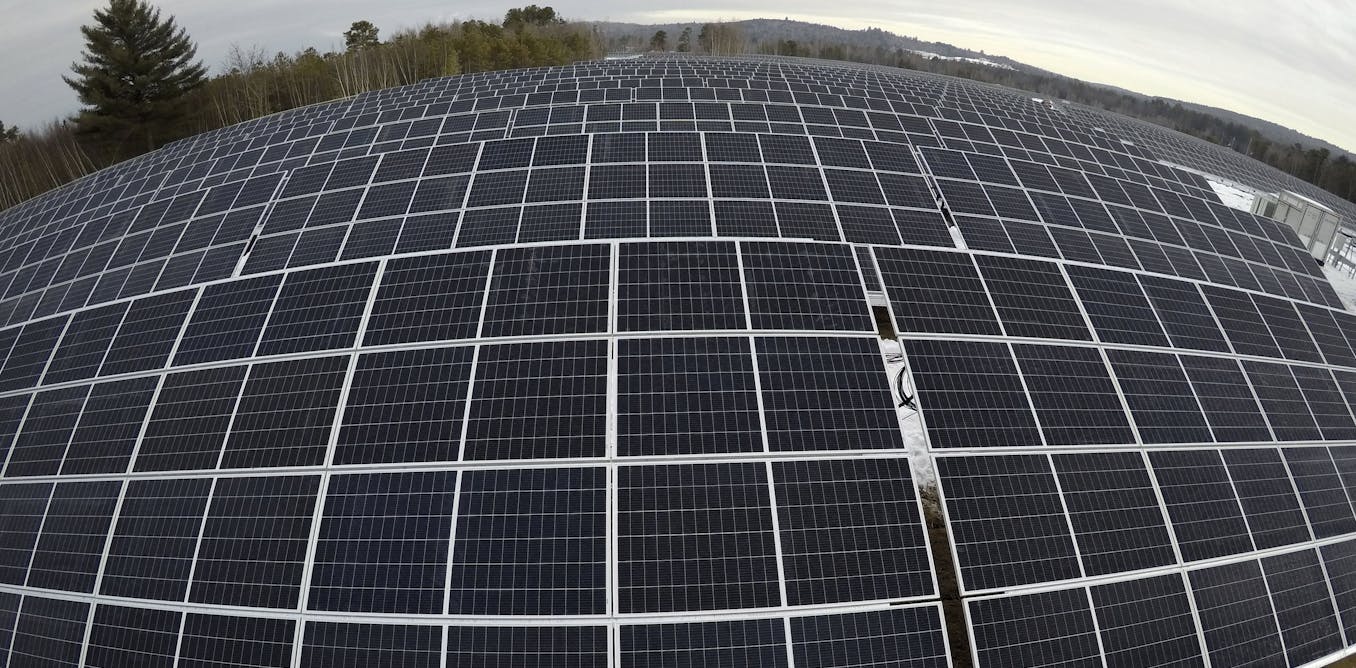Offshore wind farms could help capture carbon from air and store it long-term – using energy that would otherwise go to waste
Wind turbines often can produce more power than is needed for electricity onshore. That extra energy could be put to work capturing and storing carbon.
Jan. 25, 2022 • ~8 min






